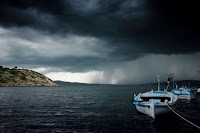His Cruciform Path

To follow Jesus requires a lifetime of self-denial and sacrificial service for others and a willingness to lose everything for the Gospel . When Jesus dispatched his disciples to announce the “ Good News ” to the “ lost sheep of Israel ,” he warned that they would find themselves as “ sheep among wolves .” Hostile men would haul them before “ councils and whip them in their synagogues ,” and they would be hated “ by all men for my sake .” That was the harsh reality Christ’s disciples discovered when they proclaimed his message to the world.









